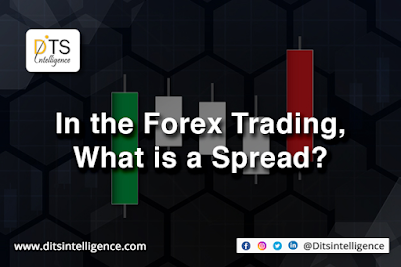For each currency pair, forex brokers will provide you two separate prices: the bid and ask price.
The "bid" is the price at which the base currency can be SOLD.
The "ask" is the price at which the base currency can be purchased.
The spread is the difference between these two prices.
Also referred to as the "bid/ask spread."
Brokers who do not charge commissions rely on the spread to make money.
This spread represents the cost of enabling instantaneous transactions. This is why "transaction cost" and "bid-ask spread" are interchangeable terminology.
The cost of making a trade is included into the buy and sell price of the currency pair you want to exchange, rather than being charged separately.
This makes sense from a business aspect. The broker provides a service and must earn a profit in some way.
They profit by selling the currency to you for a higher price than they purchased for it.
They also profit by purchasing currency from you at a lower price than they would receive when they sell it.
The spread is the term for this discrepancy.
It will need to buy your iPhone at a lesser price than it would sell it for in order to earn a profit.
If it can sell the iPhone for $500, the maximum it can buy from you is $499 if it wants to earn any money.
The spread is the $1 difference.
When a broker says "zero commissions" or "no commission," this is misleading since you still pay a commission even if there is no separate commission cost.
It's simply a function of the bid/ask spread!
How Spread is measured in the Forex Trading
The spread is commonly expressed in pips, which is the smallest unit of a currency pair's price change.
One pip is equal to 0.0001 for most currency pairs.
1.1051/1.1053 is an example of a two-pip spread for EUR/USD.

The Japanese yen is quoted to just two decimal places (unless there are fractional pips, in which case it is quoted to three decimal places).
USD/JPY, for example, would be 110.00/110.04. This quote shows a 4 pip spread.
Types of Spreads in the Forex Market (FX)
The types of spreads you'll see on a trading platform are determined by the forex broker's business model.
Spreads are divided into two categories:
1-Fixed
2-Variable (sometimes known as "floating") is a type of variable that cannot be changed.

Forex, what are fixed spreads?
Fixed spreads remain constant no matter what the market conditions are at any one time. In other words, the spread is unaffected whether the market is erratic like Kanye's moods or quiet as a mouse. It does not change.
Brokers who operate on a market maker or "dealing desk" model offer fixed spreads.
The broker buys large positions from their liquidity provider(s) and offers them to traders in smaller sizes through a dealing desk.
This means that the broker is the counterparty to the trades of their clients.
Because they can control the prices they present to their clients, a forex broker with a dealing desk can offer set spreads.
Read More: what is the spread in forex trading
Read More Article:
How to invest in Foreign Exchange Market (FX) Step by step in 2022
How to make an investment in foreign exchange market?
Forex Trading For Beginners: A Guide To Making Profits From Currency Trading
How to invest in forex market in 2022
When to Buy and When to Sell a Currency Pair
What is the Best Way to Make Money Trading Forex?
In the Forex Market, What is actually traded?
In Detail, What Is The Forex Market (FX)?
What is a pip in forex trading?
Currency Pairs: Buying and Selling
Forex Market (FX): It’s Size and Liquidity

Comments
Post a Comment